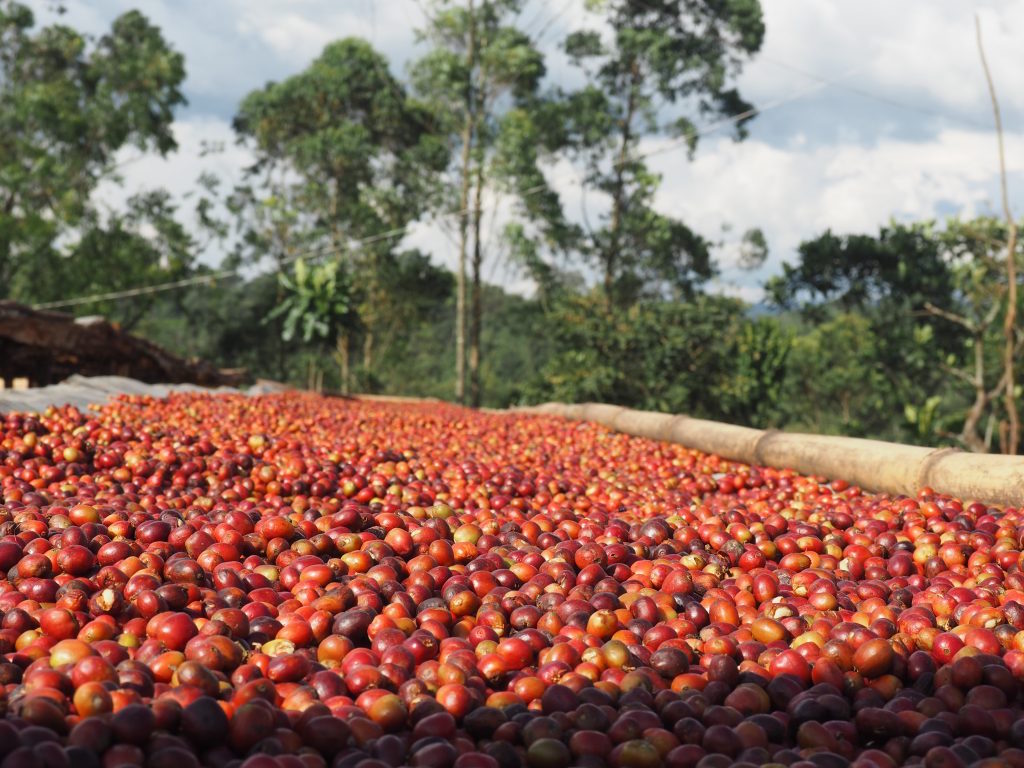Long celebrated as a producer of some of the world’s finest high-quality arabica coffees, Ethiopia and its western forests also happen to be a genetic mecca for wild and cultivated arabica coffee.
A new sustainability initiative led by the international nonprofit TechnoServe is attempting to shine a light on those forests in order to both promote and protect them while growing a market for “Ethiopia’s Forest Coffee.”
The first outputs from that effort is a new, free 70-page guidebook called Ethiopia’s Forest Coffee: An Illustrated Guide, along with an interactive online map.
The book follows the notion that Ethiopia’s rich and diverse coffee landscape can also be characterized by fragility, as deforestation and climate change combine to threaten traditional production practices and livelihoods.
Related Reading
- Most Wild Coffee Species, Including Arabica, Are Now in Danger of Extinction
- Coffee and Deforestation: Addressing Coffee’s Footprint
- Climate Change Will Alter the Specialty Coffee Landscape in Ethiopia, Study Shows
The work is part of a currently eight year initiative called Partnerships for Forests, which is being funded by the Foreign, Commonwealth, and Development Office of the UK (FCDO), an agency designed to protect the UK’s global interests.
The Ethiopian Coffee and Tea Authority has voiced its support for the promotional effort, with director Adugna Debela writing in the guide book introduction:
Ethiopian coffee was born in the forest, and to the surprise of many, it continues to live there. These coffee forests are a unique and valuable resource, providing sustainable livelihoods for thousands of families and serving as a natural genetic bank for future generations of coffee connoisseurs. Protecting them is therefore of paramount importance, and it is a responsibility that falls to all of us.
According to the program’s directives, protecting Ethiopian coffee forests is also a matter of promoting coffee cultivated within those forests to international markets, who may pay premiums both for the perceived environmental benefits of biodiversity and coffee quality.
UK-based coffee trading company Falcon Coffees has partnered with TechnoServe in the promotional project, and will print and distribute the guide to roasters, according to a press announcement from TechnoServe.
The book and interactive map highlight coffee-rich zones in Western Ethiopia — including Illibabor, Jimma, Kaffa, Bench Sheko, and Bale — along with numerous coffee-producing cooperatives within each.
“Ethiopia is probably the only origin where the manner in which coffee is farmed by smallholders protects tropical forests and the biodiversity within,” Konrad Brits, CEO of Falcon Coffees, said in the TechnoServe announcement. “This book captures the importance of this practice in the face of the climate crisis. Through fact and imagery, you will meet the communities that carry out this act of stewardship while producing some of Ethiopia’s finest coffees. This is an important book about people who need our support and whose work we need to champion.”
Nick Brown
Nick Brown is the editor of Daily Coffee News by Roast Magazine.
Comment
4 Comments
Comments are closed.







Ethiopia is one of the country of horn of Africa with 110 million people and very renowned for producing world class coffee. Coffee is widely drunk by Ethiopians. Coffee producing farmers are the least benefited in Ethiopia when we see the profit derived by Starbucks and other coffee dealers in the west . If the supply chain of coffee needs to go on uninterrupted, the giant west coffee dealers should not turn their eyes away from source farmers in Ethiopia and elsewhere. Take care of the stream by planting trees…. If you are in dire need of getting clean water. This is commendable article.
Good article
Very exertional information
It is a timely initiative to preserve and use the unique Ethiopian coffee genetic resources and its natural environments for the benefits of all coffee lovers, family and friends. For this, there is a need to establish and support, among others, National Forest Coffee Forum/Platform where all the key partnerd and stakeholders (Public nstitutions , Private sectors, NGOs , partners ) can efficiently and effectivelly collaborate in a sustainable value chain approach- field to cup.